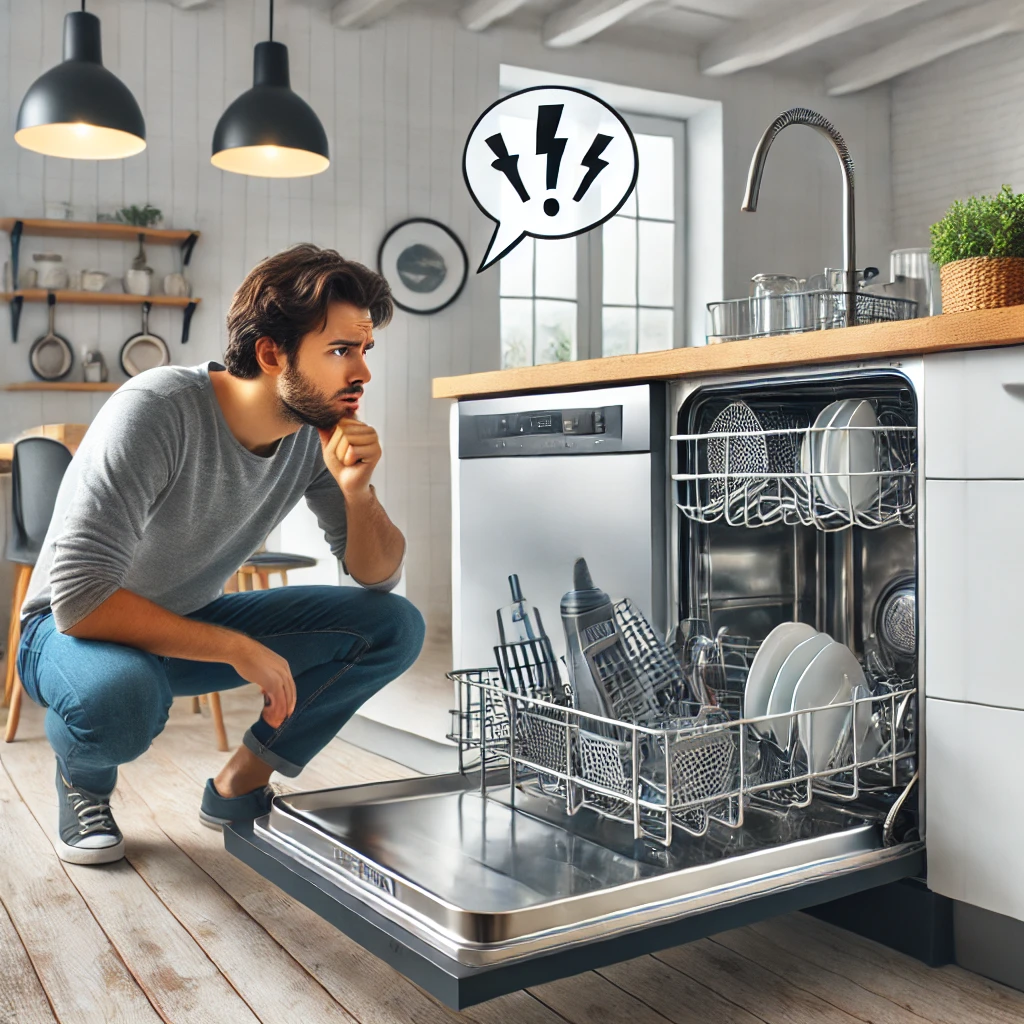
Solve a Noisy Dishwasher with These Easy Fixes
A noisy dishwasher can be frustrating, especially if it interrupts your peaceful home environment. While dishwashers naturally make some noise, unusual sounds like grinding, rattling, or buzzing may indicate an issue. Fortunately, many of these problems are easy to fix. Let’s go through common causes of dishwasher noise and how to solve them.
1. Identify the Type of Noise
Different sounds can point to different problems. Here’s what they could mean:
- Rattling – Loose utensils or dishes vibrating inside the dishwasher.
- Grinding – Possible food debris stuck in the pump or motor.
- Buzzing – A normal sound, but excessive buzzing may indicate a faulty motor.
- Humming – Often caused by a clogged drain pump.
- Clicking – The detergent dispenser opening, which is normal.
2. Check for Loose Items
One of the most common reasons for dishwasher noise is unsecured dishes or utensils.
What to Do:
- Make sure all items are properly loaded and not touching each other.
- Ensure utensils, especially long-handled ones, are not hitting the spray arms.
3. Inspect the Spray Arms
Blocked or damaged spray arms can create a rattling or knocking noise.
What to Do:
- Spin the spray arms manually to check for obstructions.
- Remove and clean the spray arms to clear food debris.
- Replace the spray arms if they are cracked or broken.
4. Clean the Filter and Drain Pump
Food particles can get trapped in the filter or drain pump, leading to grinding or humming noises.
What to Do:
- Locate the filter at the bottom of the dishwasher and remove any debris.
- Check the drain pump for blockages and clean it as needed.
5. Examine the Motor and Pump
A malfunctioning motor or circulation pump can be the culprit behind loud buzzing or grinding sounds.
What to Do:
- Run a cleaning cycle with a dishwasher cleaner to remove build-up.
- If the noise persists, the motor or pump may need professional repair or replacement.
6. Tighten Loose Parts
Dishwasher components can loosen over time, leading to unnecessary vibration.
What to Do:
- Check for loose screws on the door panel and kick plate.
- Ensure the dishwasher is level—adjust the feet if needed.
7. When to Call a Professional
If you’ve tried these fixes and your dishwasher is still making excessive noise, it may be time to call a professional. Persistent loud noises could indicate a failing motor, worn-out bearings, or a broken pump.
Conclusion
A noisy dishwasher isn’t just annoying—it could signal an underlying issue. By identifying the type of noise and following these easy fixes, you can keep your dishwasher running quietly and efficiently. If the problem persists, don’t hesitate to seek professional help.

